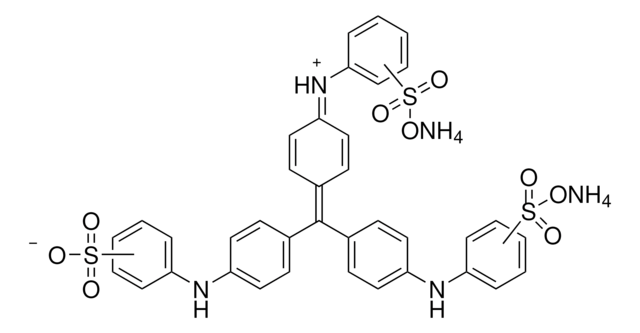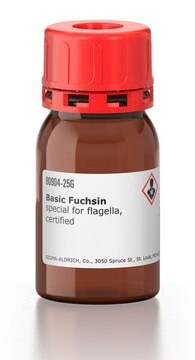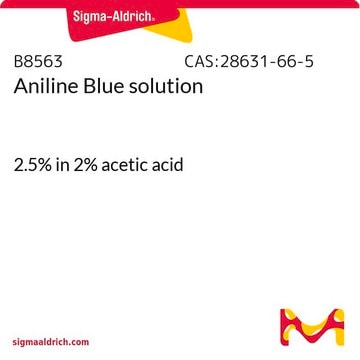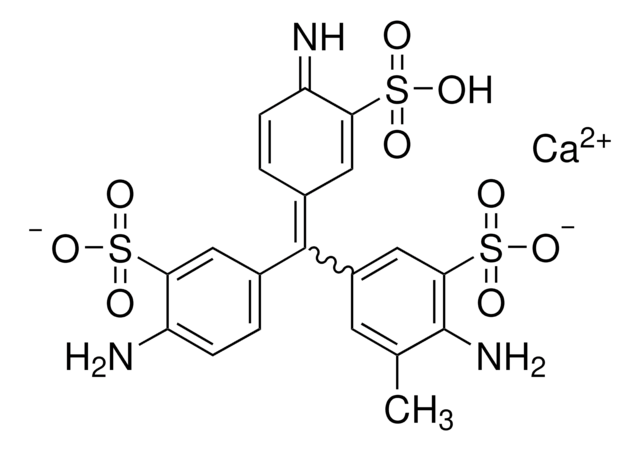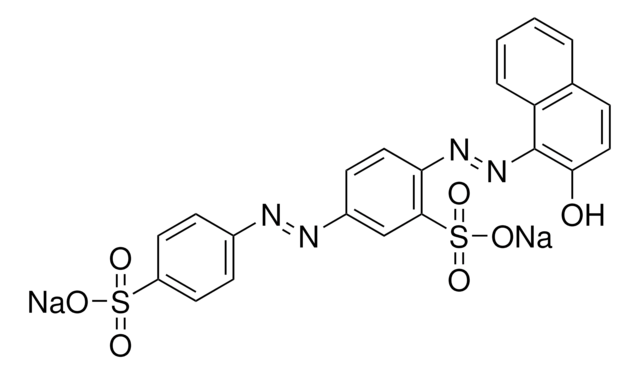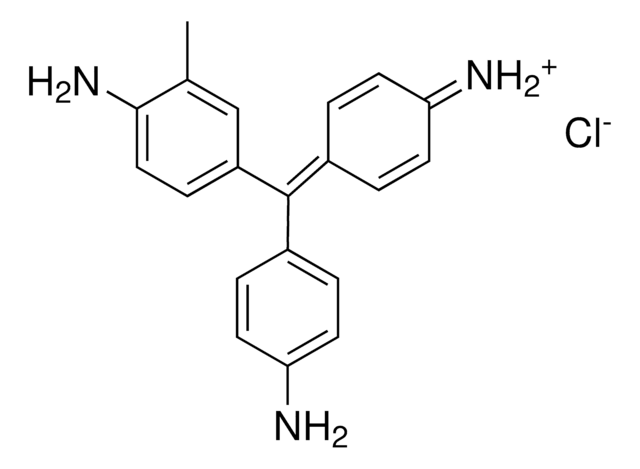F8129
Acid Fuchsin
Powder
Synonym(s):
Acid Violet 19, Fuchsin S, Fuchsin acid, Rubine S
About This Item
Recommended Products
product name
Acid Fuchsin, used in tissue staining
Quality Level
form
powder
composition
Dye content, ~70%
technique(s)
microbe id | staining: suitable
color
blue-green
solubility
H2O: 1 mg/mL
application(s)
diagnostic assay manufacturing
hematology
histology
storage temp.
room temp
SMILES string
[Na+].[Na+].Cc1cc(cc(c1N)S([O-])(=O)=O)\C(c2ccc(N)c(c2)S([O-])(=O)=O)=C3/C=CC(=N)C(=C3)S(O)(=O)=O
InChI
1S/C20H19N3O9S3.2Na/c1-10-6-13(9-18(20(10)23)35(30,31)32)19(11-2-4-14(21)16(7-11)33(24,25)26)12-3-5-15(22)17(8-12)34(27,28)29;;/h2-9,23H,21-22H2,1H3,(H,24,25,26)(H,27,28,29)(H,30,31,32);;/q;2*+1/p-2
InChI key
WZRZTHMJPHPAMU-UHFFFAOYSA-L
Looking for similar products? Visit Product Comparison Guide
General description
Application
Storage Class Code
11 - Combustible Solids
WGK
WGK 3
Flash Point(F)
Not applicable
Flash Point(C)
Not applicable
Personal Protective Equipment
Regulatory Listings
Regulatory Listings are mainly provided for chemical products. Only limited information can be provided here for non-chemical products. No entry means none of the components are listed. It is the user’s obligation to ensure the safe and legal use of the product.
JAN Code
F8129-BULK:
F8129-25G:
F8129-50G:
F8129-100G:
F8129-VAR:
Certificates of Analysis (COA)
Search for Certificates of Analysis (COA) by entering the products Lot/Batch Number. Lot and Batch Numbers can be found on a product’s label following the words ‘Lot’ or ‘Batch’.
Already Own This Product?
Find documentation for the products that you have recently purchased in the Document Library.
Customers Also Viewed
Our team of scientists has experience in all areas of research including Life Science, Material Science, Chemical Synthesis, Chromatography, Analytical and many others.
Contact Technical Service